Time of Day - pnmprod
Time-of-Day Rate*
* Rate Schedule 1B Time-of-Day rate option.
We are excited to announce a new rate program for our PNM residential customers who want to upgrade to a free new, cellular meter. The cellular meter will allow you to learn about your energy usage. You will receive monthly emails detailing usage, budget alerts, and high use alerts. Plus you will be able to see your energy usage every day in an activity map.
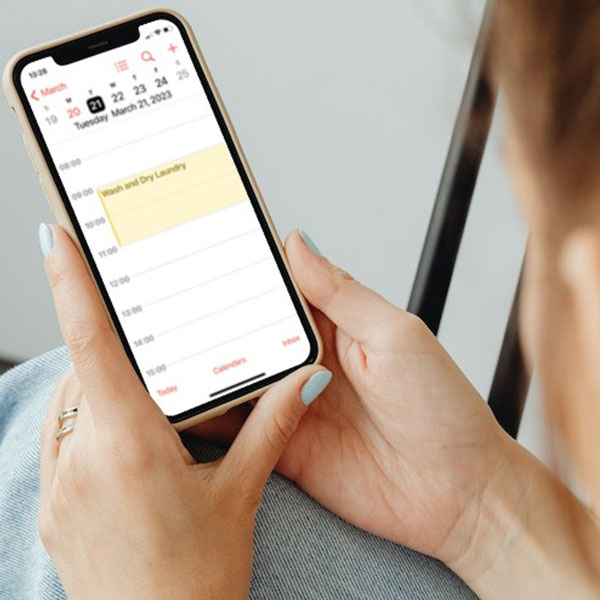
What is it?
Time-of-Day is an opt-in program with a pricing plan in which electricity rates vary according to the time of day, season, and day type (weekday or weekend/holiday). Electricity prices are higher during on-peak hours and lower during off-peak hours. With time-of-day, you have more control over your energy bills and when you shift your energy use to off-peak times, you can save substantially because the rates are lower. Shifting your energy use can be simple and easy because the times of day that prices go up or down are the same every weekday.
Sign Up Now
Sign up now and get pre-enrolled.
What are the on-peak hours?
| Season/Peak Period | Time-of-Day Rate |
|---|---|
| Summer On-Peak $0.31/kWh | 15 hours a week (Monday-Friday- 5:00 PM to 8:00 PM) |
| Summer Off-Peak $0.08/kWh | 153 hours a week (All other hours) |
| Non-Summer On-Peak $0.17/kWh | 30 hours a week (Monday - Friday - 5:00 AM - 8:00 AM & 5:00 PM - 8:00 PM) |
| Non-Summer Off-Peak $0.07/kWh | 138 hours a week (All other hours) |
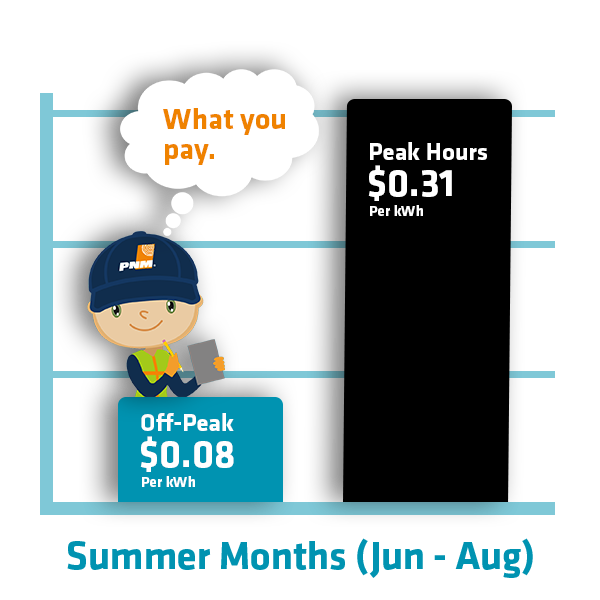
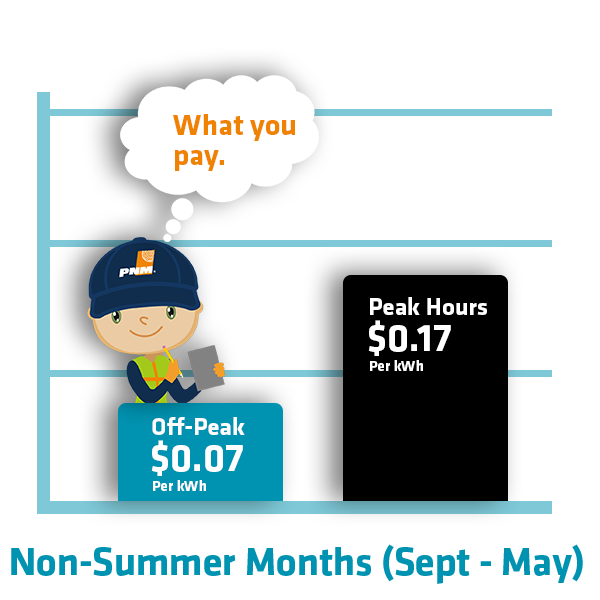
Important terminology to know
| Term | Definition |
|---|---|
| Time-of-Day (TOD) | An electric rate plan where the price per kWh depends on the time of day. |
| Kilowatt-hour (kWh) | A measure of electricity defined as a unit of energy in one hour. |
| On-Peak | A specific time of day when electricity demand is at its highest, highest prices. |
| Off-Peak | A specific time when electricity demand is lower, lower prices. |

How much can I save?
Save more by shifting your usage. Under the Time-of-Day rate, your electricity bill depends on how much you use and when you use it. For instance, if you have a big home and a big family and do a lot of laundry, you can save a lot by washing your clothes before or after on-peak hours or on weekends.
A programmable thermostat can also help you use less energy. You can also save by using a timer for your water heater and pool pump.


Bill Guarantee
Residential and Small Power customers only will qualify for the bill guarantee during the program. The bill guarantee will only be available one time per customer under the following conditions. The bill guarantee will be calculated once at the end of a customer's first twelve consecutive months on the program rate at the same premise. After the twelve months, PNM will calculate what the customer would have paid under their original rate and what they paid under the Time-Of-Day rate. If the customer paid more under the Time-Of-Day rate, then PNM will credit the difference on the customer's bill.
What can I do to reduce energy use during on-peak hours?
Below are simple things you can do to reduce your energy usage.
1
Pre-heating or cooling your home outside of on-peak hours (turn off the heater or air conditioner right before on-peak hours begin).
2
Using timers to run appliances such as dishwashers, washing machines, and ovens at off-peak times (set timer to start when on-peak times are over).
3
Installing timers on electricity-consuming appliances such as electric water heaters, indoor and outdoor lighting, water recirculation pumps, and pool and spa pumps.
4
Using less hot water by operating washing machines and dishwashers during off-peak hours or on cold water.
5
Setting the thermostat for your air conditioner at a higher temperature when it is running.
6
You can also use a programmable thermostat to help manage your energy usage.
7
Turning off all but essential lighting.
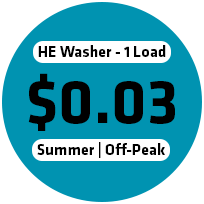

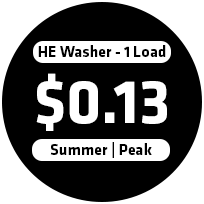
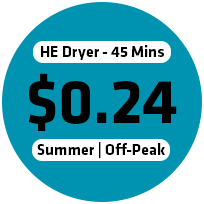

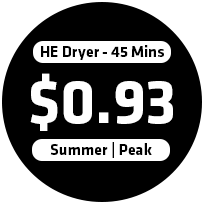
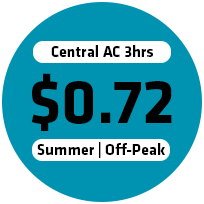

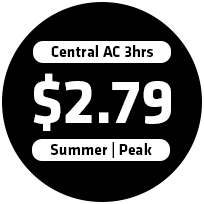
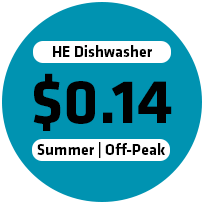

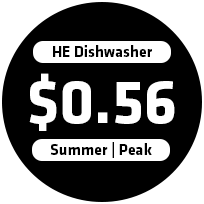
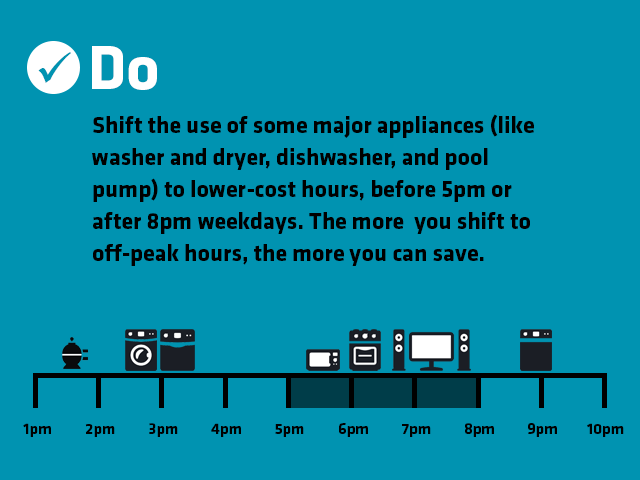
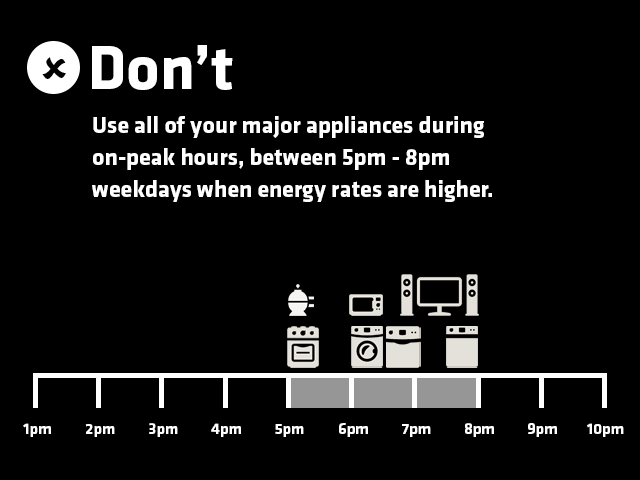

Do I qualify?
As a residential customer, you can participate in this program if you are willing to use less energy during peak hours and more during off-peak hours. This means shifting some of your household tasks, such as washing clothes, and dishes, or using large appliances, to off-peak times.
Get Pre-Enrolled, as we have a limited number of spots for this program. Only 7,500 residential customers can enjoy this special rate.

What do I need to do?
Join the Time-of-Day rate and save money on your energy bills.
If you think you can shift your energy-consuming activities to use less electricity during on-peak hours, you should consider signing up for this rate.
You will get pre-enrolled for a free new cellular meter from PNM by signing up.
Frequently Asked Questions
For any other questions please send an email to timeofday@pnm.com or call customer service at (888) DIAL-PNM (1-888-342-5766). Weekdays, 7:30 a.m. to 6 p.m.
What is Time-of-Day?
Time-of-Day is an opt-in program with a rate plan in which electricity rates vary according to the time of day, season, and day type (weekday or weekend/holiday). Electricity prices are higher during on-peak hours and lower during off-peak hours. With time-of-day, you have more control over your energy bills and when you shift your energy use to off-peak times, you can save substantially because the rates are lower. Shifting your energy use can be simple and easy because the times that prices go up or down are the same every weekday. This also helps us use more sustainable energy when we would otherwise have to rely on less environmentally friendly sources of energy.
What is the Control Group?
We are excited to invite you to join our Time-of-Day rate program. This program will help you save money on your electricity bill when you use energy at different times of the day.
When you are a part of the Control Group, here is how Time-of-Day will work:
- You will receive a new cellular meter that will track your energy use every hour. You can access this data online anytime.
- For the first year, you will stay on your current Residential (1A) rate and pay the same amount as before. This will give you time to learn about your energy habits and how to adjust them for the Time-of-Day rate.
- After one year, you will switch to the Time-of-Day rate. This means you will pay less for electricity during off-peak hours (when demand is low) and more during on-peak hours (when demand is high). Off-peak hours are usually at night, on weekends and on holidays. On-peak hours are usually in the afternoon and evening on weekdays.
- By shifting some of your energy use to off-peak hours, you can lower your bill and help us manage the electricity supply better.
We hope you will join us in this program and enjoy the benefits of the Time-of-Day rate.
Bill Guarantee
Residential and Small Power customers only will qualify for the bill guarantee during the program. The bill guarantee will only be available one time per customer under the following conditions. The bill guarantee will be calculated once at the end of a customer's first twelve consecutive months on the program rate at the same premise. After the twelve months, PNM will calculate what the customer would have paid under their original rate and what they paid under the Time-Of-Day rate. If the customer paid more under the Time-Of-Day rate, then PNM will credit the difference on the customer's bill.
What Holidays are included in the Time-of-day program?
New Year's Day, Memorial Day, Independence Day, Labor Day, Thanksgiving Day, Christmas Day
What can I do to reduce energy use during on-peak hours?
- Pre-heating or cooling your home outside of on-peak hours (turn off the heater or air conditioner right before on-peak hours begin).
- Setting the thermostat for your air conditioner at a higher temperature when it is running.
- You can also use a programmable thermostat to help manage your energy usage.
- Using timers to run appliances such as dishwashers, washing machines, and ovens at off-peak times (set timer to start when on-peak times are over).
- Installing timers on electricity-consuming appliances such as electric water heaters, indoor and outdoor lighting, water recirculation pumps, and pool and spa pumps.
- Using less hot water by operating washing machines and dishwashers during off-peak hours or on cold water.
- Turning off all but essential lighting.
Who can participate in this program?
All PNM customers are eligible for the Time-of-Day program (except customers on rates 6, 20, and 36B).
Can I get off this rate at any time?
Yes, customers can choose to switch to the Residential service 1A.
Can a residential customer with an electric vehicle participate in this program?
Yes, residential customers with electric vehicles can participate. Customers enrolled in the Whole House EV program cannot participate in the Time-of-Day program. They will need to choose which program is most beneficial to them.
Can a solar customer participate in the Time-of-Day program?
Yes, a solar customer can participate in this program, but we suggest speaking to the solar group about net metering.
Is Time-of-Day right for me?
Time-of-Day rate plans are based on how much energy you use and when you use it. By shifting some electricity usage to times when energy costs are less and demand is down, you can lower your bill and support a healthier environment.
What is the difference between Residential 1A and Residential 1B Time-of-Day pilot rate option?
The difference between the two rates is how the energy rates are structured. On Residential 1A, there are three energy blocks and the energy rate per kilowatt-hour is more expensive in each block. For instance, in the non-summer (summer rates are different):
Block 1 is 7.5 cents per kilowatt-hour for usage 0 to 450 kWhs.
Block 2 is 10.7 cents per kilowatt-hour for usage between 451 - 900 kWhs.
Block 3 is 14.1 cents per kilowatt-hour for usage of 901kWhs and greater.
On Residential 1B Time-of-Day pilot rate, energy charges depend on the hour of day that you are using energy. Energy is more expensive during on-peak hours and less expensive during off-peak hours. For non-summer this means:
On-peak, 5:00 to 8:00 morning and evening Monday - Friday (30 hours per week). Energy rate 17.1 cents per kWh.
Off-peak, all other hours including weekends (138 hours per week). Energy rate is 6.9 cents per kWh.
Can I get the Bill Guarantee if I am only on the Time-of-Day pilot rate for 9 months?
No. You must be taking service on the Residential or Small Power Time-of-Day pilot for 12 consecutive months in the same premise. If you switch from Time-of-Day pilot back to Residential 1A or Small Power 2A after 1-11 months, then there is no bill guarantee. And you will not be able to receive the bill guarantee if you return to the Time-of-Day pilot once you leave it.
Can I get the Bill Guarantee if I switch off the Residential or Small Power Time-of-Day pilot after 6 months and then come back to the rate later on?
No. The bill guarantee is only available for the first 12 consecutive months on the rate.
Why is there a Control Group as part of the Residential Time-of-Day pilot rate?
The control group is part of the residential Time-of-Day pilot rate only. When a customer signs up to participate in the Time-of-Day pilot, they are randomly placed in either the control group or the rate group. Both groups get the educational tools, emails, and energy activity map. But the rate group goes onto the 1B Time-of-Day rate immediately while the control group continues on Residential 1A for a period of months before moving onto the 1B Time-of-Day rate.
For the Residential Time-of-Day pilot, how is the Control group different from the Rate group?
The control group and the rate group collectively make up the residential Time-of-Day pilot customer list. Both will have their current meters exchanged for a new cellular interval meter that can measure energy usage in 15-minute intervals. Both will receive monthly summary emails on their energy usage and will have the choice to opt-in to receive bill projection and budget alert emails. Also both will have access to the energy usage activity map on the website portal.
The difference is that the Rate group will go on the Time-of-Day pilot rate immediately with the bill guarantee starting immediately. The monthly summary emails will also contain tips about how to shift energy usage from more expensive on-peak hours to less expensive off-peak hours. The Control group will remain on their current rate for up to one year before switching over to the Time-of-Day pilot rate. When they are switched over to the Time-of-Day pilot rate the bill guarantee will begin at that time.
What are the educational tools that I will have access to on the Time-of-Day pilot?
All residential customers on the Residential Time-of-Day pilot will receive educational emails and the activity map to see their energy usage by hour and day. This means both customers in the Control group and the rate group will receive these tools with minor differences. There will be a monthly email that summarizes their energy usage. For those who are on the Time-of-Day rate, there will be additional tips for shifting usage to lower-cost off-peak hours. Both sets of customers will receive a bill projection email and can opt into a budget alert email.
Customers can choose whether or not to receive these notifications via the preferences page.
The bill projection email/text is sent about halfway through the billing cycle and lets a customer know how much they've spent up to that time and the projected final cost based on current usage patterns with details on the % and amount differences from previous months.
The budget alert email/text is only sent if the customer has reached 75% of their customer-selected budget for the month and it lets the customer know how many days are left in the billing cycle. It does not matter when in the billing cycle the 75% is reached (at 5 days, 20 days, 29 days, etc), the email is sent at that time. The email is not sent if the customer never reaches 75% of their budget. The customer must set a budget to receive this email and can change their budget every month if desired.
The high usage alert email/text is a proactive email to let the customer know that their day's usage went beyond what their typical consumption patterns would indicate.
Residential Time-of-Day pilot customers can unsubscribe from these emails at any time. Because these emails require several months of usage data to be able to make usage comparisons and bill projections, they are not available until the customer has been on the rate for 3 months.
Finally, on the energy portal there is an activity map with energy usage by hour and day. This is updated daily with a customer's energy consumption.
How do I sign up for the Time-of-Day program?
Sign up on PNM.com/timeofday or call customer service at (888) DIAL-PNM (1-888-342-5766). Weekdays, 7:30 a.m. to 6 p.m.



